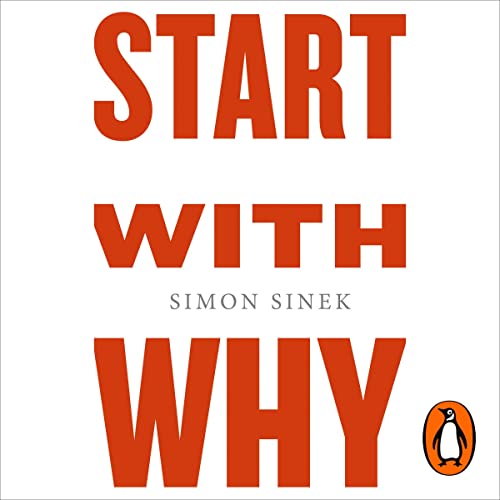Is purpose-driven public relations here to stay?
Purpose is now underpinning all aspects of corporate strategy and communications planning.
About the author
Alex Cottee prepared this article as part of a CIPR Professional PR Diploma assignment while studying with PR Academy.

There is a seismic shift underway for the public relations industry. An evolution from campaigns to earn media or crisis communications to manage brand reputation – PR specialists are having to rethink how to shape communications strategies because of one key change – Purpose.

We only have to look at the avalanche of international brands who have ceased operating in Russia, highlighting the seemingly irreversible trend of companies being value-driven as opposed to profit-driven – although increasingly the former is helping to fuel the latter. Purpose is now underpinning all aspects of corporate strategy and communications planning.
Fancy some of Kentucky’s finest whilst submitting your tax return to your KPMG accountant? Well, if you are in Russia, you can forget about it. Here’s why purpose-driven Public Relations is here to stay.
The theory of ‘why’
According to Simon Sinek’s Golden Circle model, people don’t buy what you do they buy why you do it. This rings true when we look at the rise of purpose-led communications.
Recently, we have seen many global brands pull out of Russia to the detriment of their short-term profits. Whilst this may be less of a shock than it would have been a decade ago, it’s still fascinating to see, and it begs the question – why are some organisations able to inspire change whilst others aren’t?
The answer is simple, they’re doing what’s inherently right, or as Sinek refers to “they’re acting from the inside out” by being guided by their corporate moral compass, rather than revenue streams. To that end, building purpose-led communications strategies that evolve around company values will pay dividends in the long run and by focusing our messaging on the ‘Why’, we are speaking directly to the growing number of consumers who buy what a brand stands for, not solely the product they sell.
Therefore, as custodians of the PR practice, it is incumbent on us to find a way into the hearts of our audiences, the hearts of our stakeholders and most importantly the hearts of our businesses, in order to communicate the ‘why’ of every action being taken. By doing this, we are fulfilling our professional duty in delivering purpose-fuelled communications which speak to the best of human values: honesty, integrity, and authenticity.
Purpose-led PR can improve bottom-line
It’s important to realise there is significant customer demand for purpose-led communications that are underpinned by the aforementioned values, and this has the potential to drive better financial performance in the short, medium, and long term. A research paper by Quartz Insights published in 2019 found that there is a strong economic incentive for brands to adopt a purpose-led strategy. In WE’s latest global ‘Brands in Motion’ study, the overarching finding was that “brand purpose is a must-have for today’s bottom line and tomorrow’s legacy”.
As communication professionals, it is therefore our responsibility to create genuine stories which are guided by our business’ core-values, not what – on the surface – is most likely to drive profit, because purpose will eventually create more value for your brand, both financially and reputationally. However, one would be forgiven for thinking that when a brand makes a stance on a divisive issue (initiating a boycott, for example) that this would in turn negatively impact sales and profitability. More and more, the opposite is proving to be true. According to Kantar’s Purpose Study, purpose-led brands had seen their valuation surge by 175% over the past 12 years, versus a growth rate of just 70% for listless brands uncertain of their role.
Nike’s 2016 Colin Kaepernick ‘Just Do It’ campaign ignited a boycott, but rather than impact sales, it made them $6 billion more valuable as a business.
What the naysayers did not understand is that Nike was listening more closely than ever to their customers via social media. In doing so, Nike was able to grasp the groundswell of support they had behind taking a stance on this issue and did so accordingly – all to the benefit of their bottom line.
Purpose-led PR can define your brand’s reputation
It’s simply not enough anymore for well-known companies to passively listen to societal issues without acting or at the least clearly communicating a stance. 86% of respondents in the 2021 Edelman Trust Barometer Special Report expect brands to take one or more actions beyond their core product or business. According to author Andrew Griffin, reputation is “assigned to you by others”, meaning brands must have a voice in the main issues of the day in order to uphold a strong corporate image. If brands sit back, remain silent and hope it goes away, then they face the risk of tarnishing their reputation or the much-worse prospect of being ‘cancelled’.
Cancel culture is well and truly alive, perhaps even thriving, so brands need to be meticulous in how they communicate when societal issues arise. Disney recently came under pressure, when their CEO decided they were staying out of politics – which backfired badly when they didn’t communicate a position on the ‘Parentals Rights in Education’ bill in Florida. With pressure mounting and #DisneyDoBetter trending on social media, they were forced to backtrack and come out against the bill after it was passed. The lesson here? If Disney was proactive in conveying a stance, which would be aligned to their inclusive company values on equality, then they would have undoubtably saved themselves the embarrassment of boycott, reputation damage and cancellation. Brandon Wolf, press secretary of Equality Florida, summed it up perfectly: “Disney having a public stance before a bill is passed can be hugely influential,” said Mr. Wolf. “There’s an immense amount of power when they speak.” In fact, according to a study by Quartz Insights 64% believe brands, rather than governments, are primarily responsible for driving social change.
Similarly, Uniqlo faced backlash for not pulling out of Russia, justifying their original stance by saying that “clothing is a necessity of life” but later backflipped due to the growing intensity of the conflict and crimes against humanity, not to mention the mounting public pressure. In WE’s recent study, it is no wonder there was a 30% YoY increase in the number of respondents who expect brands to create stability in uncertain times. As with the Nike example, it’s evident that brands should only act once they’ve engaged in dialogue with their customers, stakeholders and employees to fully understand everyone’s needs, and gain a better view of the consequences for acting (or indeed not). This is backed up again by the same WE study, with 83% of respondents saying brands should listen to stakeholders to decide what issues to address.
Yet according to Sprout’s Brands Creating Change study, consumers don’t always trust a brands genuineness when they make a stance. More than half of consumers (53%) believe brands only take a stand for public relations or marketing purposes. For a more effective stance? Consumers say it boosts a brand’s credibility when the issue they take a stand on directly impacts their customers (37%) or business operations (36%). This is where listening and dialogue plays a vital role in getting it right.
Active listening will shape your brand’s purpose
Experts in an academic paper published in the year 2000 concluded that “effective public relations starts with listening”. As communication specialists, we’re given the privilege of defining the narrative on key societal issues as they relate to the businesses we work with. In the responses we create, we have the potential to become a leading voice, thereby making a genuine difference, as we can inspire change through our clear and considered messaging. But we should only do this once we’ve actively listened to our audiences, so we can be the authentic voice of their concerns through the platform we can provide.
This thinking is grounded in academic research dating back over 20 years, with experts in a 2001 academic paper aptly titled ‘On the definition of public relations’ observing that a “concern for broader societal issues” is implicit in definitions of public relations, and calls for recognition of the function’s role in helping organisations “respond to social demands”.
To live and breathe purpose as PR practitioners, it is our duty to monitor global problems, consider their impact on our audience, and present solutions in our messaging that will push down barriers and improve the situation at hand.
We are of course limited to the businesses we work with, but if we can positively impact a situation, no matter how big or small, shouldn’t we at least try? In Sprout’s Brands Creating Change study, 70% of respondents believe it’s important for brands to take a public stand on social and political issues, up from 66% two years prior.
Case in point – my own place of employment, a sports scores business with millions of global users but with absolutely no political influence over the situation in Ukraine, took a decisive public stance by removing all Russian competitions from the app. The response was mixed, with some users threatening the infamous ‘boycott’ response and others supportive of someone like my relatively insignificant company even getting involved. However, in my opinion, it was our duty to the Ukrainian people and most importantly our Ukrainian based team members. We understood the risk of potential backlash, although it was important we acted authentically and took an ‘effective’ stance. Furthermore, there is no clear solution to the crisis in Ukraine, but publicity and loudness are some of the biggest weapons in the corporate-world’s arsenal.
Put simply, embracing purpose can create change. It transcends communications, as it’s much more than that – it’s a force of positivity which our audiences demand. It feels so natural that purpose isn’t an evolution, it was always the way; communications strategists just failed to realise it earlier.